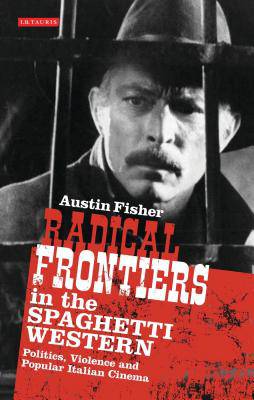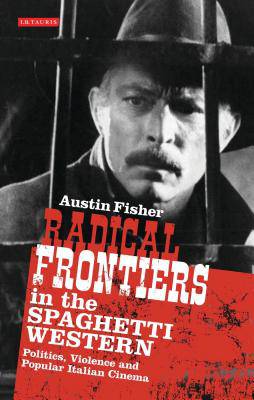
- Afhalen na 1 uur in een winkel met voorraad
- Gratis thuislevering in België vanaf € 30
- Ruim aanbod met 7 miljoen producten
- Afhalen na 1 uur in een winkel met voorraad
- Gratis thuislevering in België vanaf € 30
- Ruim aanbod met 7 miljoen producten
Radical Frontiers in the Spaghetti Western
Politics, Violence and Popular Italian Cinema
Austin FisherOmschrijving
Ever more popular in the age of DVDs, eBay and online fandom, the Spaghetti Westerns of the 1960s have undergone a mainstream renaissance which has nevertheless left their intimate relationship to the troubled politics of 1960s Italy unexamined. Radical Frontiers reappraises the genre in relation to the revolutionary New Left and the events of 1968 to uncover the complexities of a cinematic milieu too often dismissed as formulaic and homogeneous. Establishing the backdrop of post-war Italy in which the Roman studio system actively blended Italian and American culture, Austin Fisher looks in detail at the works of Damiano Damiani, Sergio Sollima, Sergio Corbucci, Giulio Questi and Giulio Petroni and how these directors reformatted the Hollywood Western to yield new resonance for militant constituencies and radical groups. Radical Frontiers identifies the main variants of these militant Westerns, which brazenly endorsed violent peasant insurrection in the 'Mexico' of the popular imagination, turning the camera on the hitherto heroic colonialists of the West and exposing the brutal mechanisms of a society infested with latent fascism.
The ways in which the films' artistic failures reflect the ideological confusions of the radical groups is examined and the genre's legacy is reappraised, as the revolutionary energy of Italy's New Left becomes subsumed amidst the conflicting agendas of New Hollywood, blaxploitation and the 'grindhouse' revival of Tarantino, Rodriguez and Raimi. Reclaiming the Spaghetti Western from the domain of the merely cool and repositioning it within the spectrum of late-1960s radical cinema, Radical Frontiers analyses the genre's narrative and cinematographic inscriptions in their political context to uncover Far Left doctrines in these tales of outlaws and sheriffs, banditry and redemptive violence.
Specificaties
Betrokkenen
- Auteur(s):
- Uitgeverij:
Inhoud
- Aantal bladzijden:
- 320
- Taal:
- Engels
- Reeks:
Eigenschappen
- Productcode (EAN):
- 9781780767116
- Verschijningsdatum:
- 6/02/2014
- Uitvoering:
- Paperback
- Formaat:
- Trade paperback (VS)
- Afmetingen:
- 137 mm x 216 mm
- Gewicht:
- 362 g

Alleen bij Standaard Boekhandel
Beoordelingen
We publiceren alleen reviews die voldoen aan de voorwaarden voor reviews. Bekijk onze voorwaarden voor reviews.








